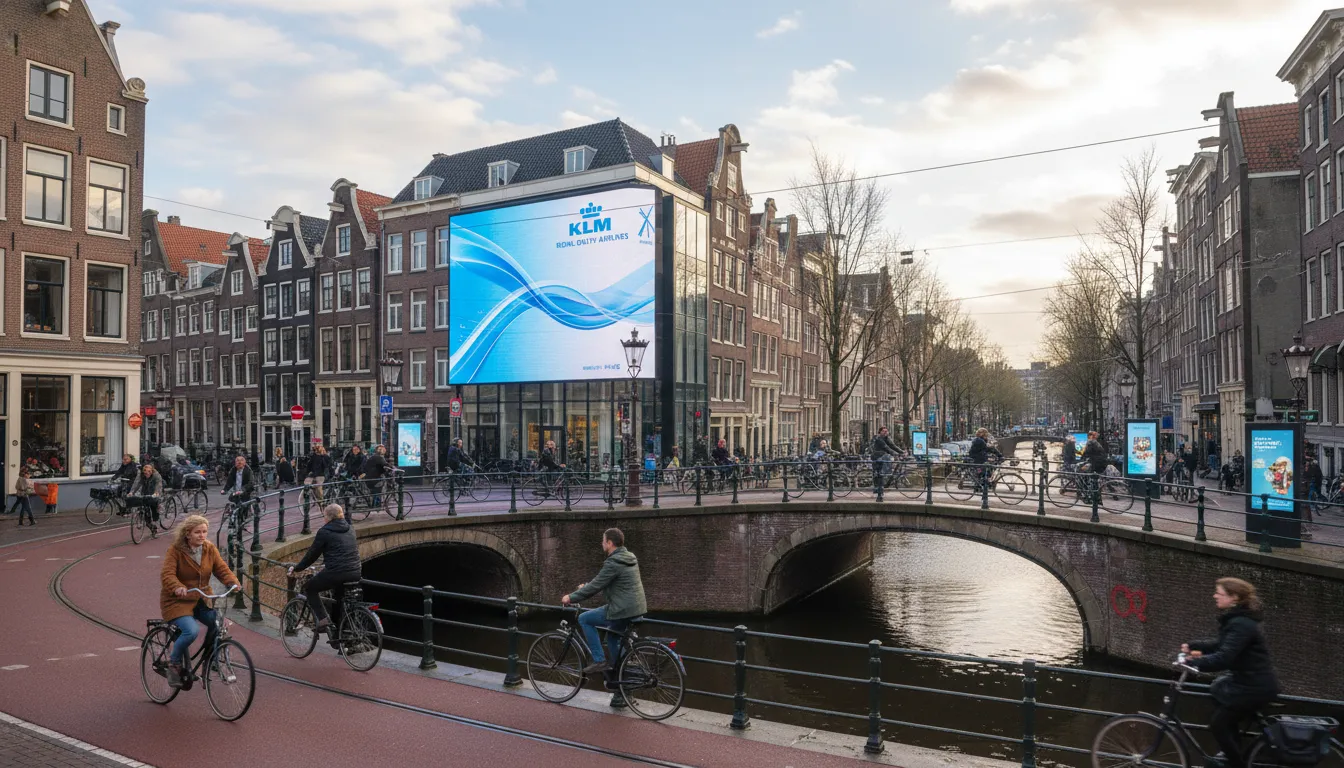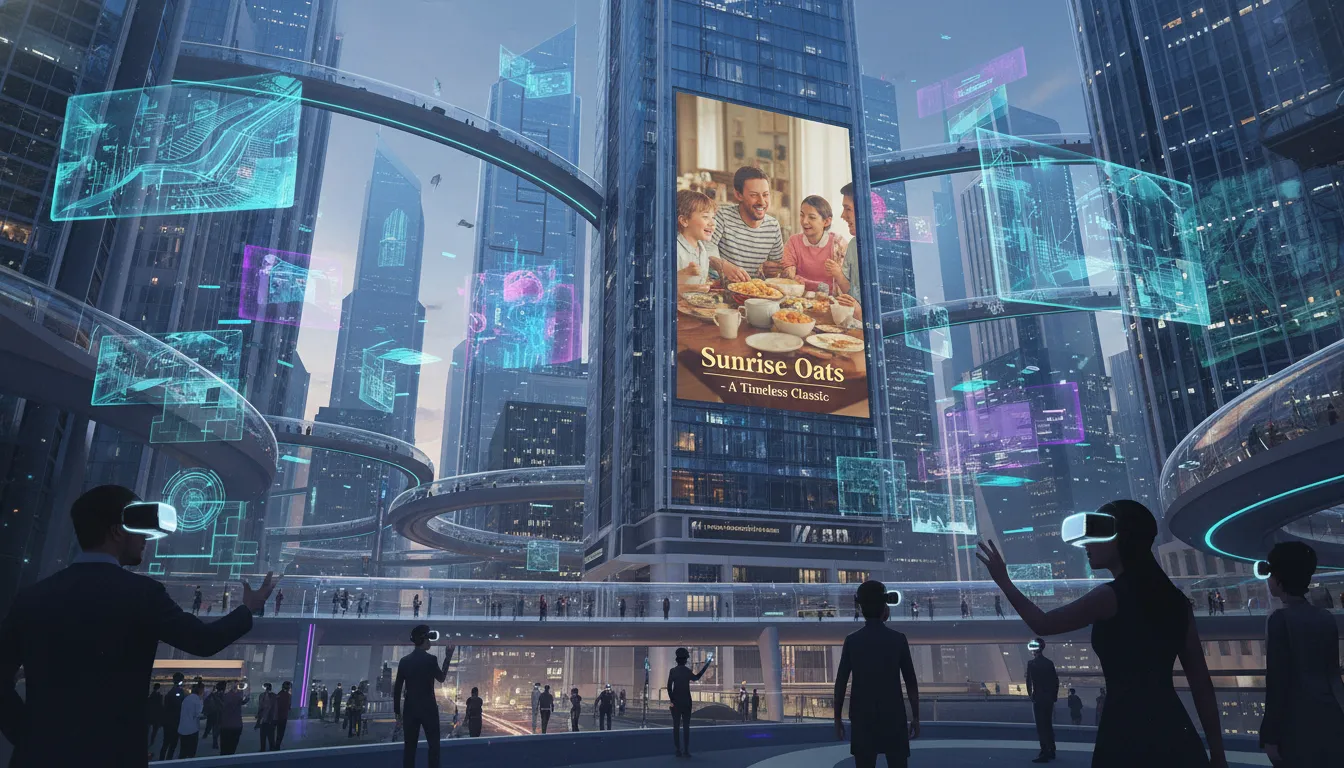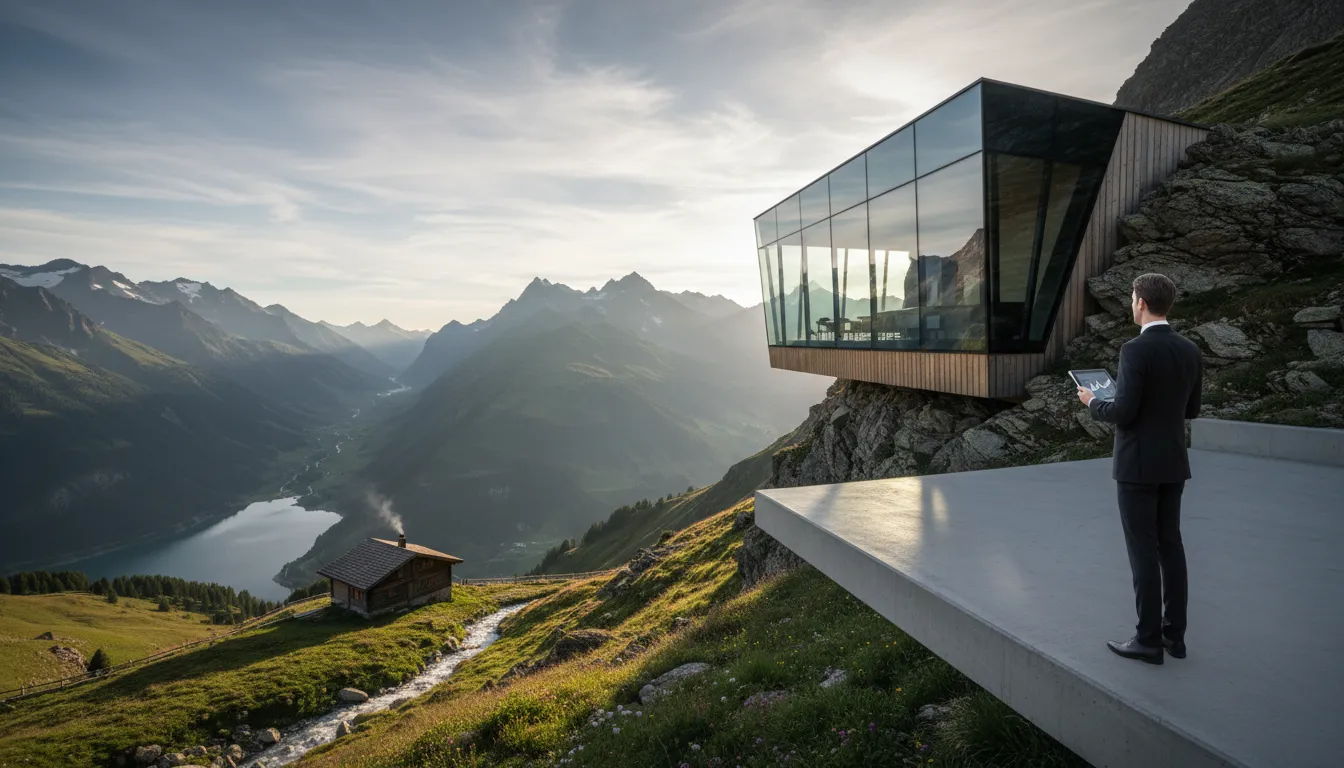
Why Real Estate Needs Specialized Website Design
The digital transformation of Vietnam's property market has fundamentally changed how buyers discover and purchase real estate. With property transactions worth billions of dollars moving online, a specialized real estate website design is no longer optional—it's essential for survival. Generic website templates simply cannot deliver the sophisticated functionality that today's property seekers demand, from advanced search capabilities to virtual property tours.
Vietnamese homebuyers now begin their property journey online, spending hours researching neighborhoods, comparing prices, and shortlisting properties before ever contacting an agent. Your property website serves as your digital showroom, and in many cases, it's the only chance you'll get to make a first impression. A poorly designed website doesn't just lose visitors—it directly costs you sales opportunities worth millions of dong.
The stakes are particularly high in Vietnam's competitive real estate landscape, where major developers and agencies compete for the same pool of serious buyers. A professional real estate website design creates immediate credibility, streamlines the buyer journey, and provides the tools needed to convert casual browsers into committed purchasers. The difference between a standard website and one purpose-built for real estate can mean the difference between market leadership and obscurity.
Essential Features for Real Estate Websites
Advanced Property Search and Filters
The foundation of effective real estate website design is a powerful search system that helps buyers quickly narrow down options from thousands of listings. Your property website must offer multi-layered filtering options including location (city, district, ward), property type (apartment, villa, townhouse, land), price range, size, number of bedrooms and bathrooms, and special features like swimming pools or parking spaces.
Vietnamese buyers have specific search requirements that international templates often miss. Your search system should accommodate local preferences such as feng shui direction (hướng nhà), floor level preferences, and proximity to specific landmarks like international schools or metro stations. Advanced search should also filter by legal status—whether properties have red books (sổ đỏ) or pink books (sổ hồng)—as this significantly impacts buyer decisions and financing options.
Interactive Maps and Location Data
Location intelligence separates professional property websites from amateur ones. Interactive mapping functionality should display properties on detailed maps with layers showing nearby amenities: schools, hospitals, shopping centers, public transportation, and entertainment venues. In Vietnamese cities like Hanoi and Ho Chi Minh City, proximity to specific districts or streets can dramatically affect property values, making granular location data essential.
Your real estate website design should integrate mapping with search functionality, allowing users to draw custom search areas on the map or search within a radius of specific points of interest. This visual approach to property discovery resonates strongly with Vietnamese buyers who prioritize location above nearly all other factors.
Virtual Tours and 3D Walkthroughs
High-quality visual experiences have become non-negotiable in modern real estate marketing. Virtual tours and 360-degree photography allow potential buyers to explore properties from their homes, saving time for both buyers and agents by pre-qualifying interest before physical viewings. This technology proved invaluable during COVID-19 restrictions and has since become a standard expectation.
For off-plan developments—a significant segment of Vietnam's property market—3D renderings and virtual walkthroughs of completed projects help buyers visualize spaces that don't yet physically exist. Your property website should seamlessly embed these experiences, ensuring they load quickly and display properly on both desktop and mobile devices.
High-Quality Photography and Video
Professional photography and videography can increase property inquiry rates by up to 400%. Your real estate website design must showcase images in high resolution with smooth gallery navigation, zoom functionality, and full-screen viewing options. Video tours, drone footage of exteriors and neighborhoods, and developer testimonials add layers of information that static images cannot convey.
Vietnamese buyers respond particularly well to video content that shows the lifestyle potential of properties—not just empty rooms, but spaces filled with beautiful furniture, happy families, and desirable amenities in use. Your website's media player should support Vietnamese subtitles and accommodate the slower internet speeds still common in some areas by offering multiple video quality options.
User Experience for Property Seekers
Intuitive Search and Navigation
The user journey on your real estate website design should be frictionless from landing page to inquiry submission. Property seekers should be able to start searching immediately without registration barriers. Search results should display key information at a glance—price, location, size, and a compelling primary image—with the ability to save favorites for later comparison.
Vietnamese users appreciate websites that remember their preferences and search history, automatically suggesting properties that match their demonstrated interests. Your property website should offer multiple viewing modes—grid, list, and map views—allowing users to switch between perspectives based on their current focus.
Saved Searches and Property Alerts
Property hunting is rarely a single-session activity. Buyers return repeatedly over weeks or months as they refine their criteria and wait for the perfect listing. Your real estate website design should include saved search functionality that allows registered users to store their specific search parameters and receive automatic email or SMS alerts when new properties matching their criteria become available.
This feature transforms your website from a passive listing platform into an active marketing tool that re-engages buyers automatically. In Vietnam's fast-moving property market, where desirable listings can sell within days, instant notifications give your buyers—and your agents—a significant competitive advantage.
Mortgage Calculators and Financial Tools
Financial considerations drive real estate decisions, yet many property websites neglect to provide calculation tools. Integrated mortgage calculators that factor in Vietnamese banking conditions—typical loan-to-value ratios, interest rates, and term lengths—help buyers understand affordability and move from browsing to serious consideration.
Your real estate website design should include calculators for monthly payments, total interest costs, and income requirements. For foreign buyers—a growing segment in Vietnam's property market—additional tools calculating foreign ownership regulations and repatriation rules add substantial value.
Agent Profiles and Easy Contact
Despite digital sophistication, Vietnamese property buyers still value personal relationships with agents. Your website should feature detailed agent profiles with photos, specializations, areas of expertise, client testimonials, and multiple contact methods. Each property listing should clearly display the responsible agent with one-click contact options.
Integration with popular Vietnamese communication platforms—Zalo, WhatsApp, and Facebook Messenger—removes friction from the initial contact moment. The easier you make it for buyers to reach out, the higher your inquiry conversion rates will climb.
Mobile Experience for Property Hunting
Over 70% of Vietnamese internet users access the web primarily through mobile devices, making mobile-first real estate website design absolutely critical. Your property website must deliver full functionality on smartphones, not a stripped-down mobile version. Property search, filtering, image galleries, virtual tours, and contact forms must work flawlessly on small screens.
Mobile optimization goes beyond responsive design. Location-based features become powerful on mobile devices—buyers physically driving through neighborhoods can instantly see available properties nearby. Click-to-call functionality removes all barriers to immediate contact, crucial in Vietnam's high-competition market where the first agent to respond often wins the listing.
Page load speed on mobile networks is particularly important in Vietnam, where 4G coverage varies significantly between urban and rural areas. Your property website should be optimized for fast loading even on slower connections through image compression, lazy loading, and efficient code structure.
Building Trust and Credibility
Verified Listings and Transparency
Vietnam's property market has historically suffered from fraudulent listings and unreliable information, making trust signals essential in your real estate website design. Clear indicators of verified listings—properties confirmed by your team with valid documentation—help legitimate offerings stand out from suspicious ones.
Transparency about property legal status, developer reputation, and construction progress for new developments builds credibility. Your property website should prominently display information about red book/pink book status, land use rights, and any legal considerations that could affect the transaction.
Customer Testimonials and Success Stories
Social proof dramatically increases conversion rates. Featured testimonials from satisfied buyers, particularly with photos and full names (with permission), validate your agency's expertise and reliability. Video testimonials carry even more weight, as they're harder to fabricate and create emotional connections with potential clients.
Case studies showing successful property transactions—how your agency helped a family find their dream home, negotiated favorable terms, or navigated complex legal requirements—demonstrate value beyond simple property listings.
Industry Certifications and Professional Affiliations
Display memberships in professional organizations like the Vietnam Association of Realtors (VARS), business licenses, awards, and certifications prominently on your real estate website design. These credentials signal legitimacy and professionalism in a market where many operators lack formal qualifications.
CRM Integration for Lead Management
A sophisticated property website doesn't just attract visitors—it captures, nurtures, and converts leads systematically. Integration with Customer Relationship Management (CRM) systems allows your team to track every inquiry, follow up consistently, and analyze which properties and features generate the most interest.
Lead capture forms should be strategically placed throughout your real estate website design—on property details pages, after virtual tours, and in response to newsletter subscriptions. These forms should feed directly into your CRM, triggering automated follow-up sequences while alerting the appropriate agent for personal outreach.
Advanced systems match inquiring buyers with suitable properties in your database automatically, sending personalized property recommendations based on their search history and stated preferences. This automation ensures no lead falls through cracks while freeing your agents to focus on high-value personal interactions.
Vietnamese Real Estate Market Considerations
Effective real estate website design for the Vietnamese market requires understanding local legal frameworks and buyer preferences. Your property website must clearly communicate whether properties have red books (sổ đỏ, permanent ownership) or pink books (sổ hồng, 50-year leasehold), as this distinction affects both property values and financing options.
Vietnamese buyers prioritize specific information that might seem secondary in other markets: feng shui compatibility, floor number (avoiding number 4, preferring numbers 6, 8, 9), building age, and developer reputation. Your listing templates should capture and prominently display these details.
Payment preferences in Vietnam often differ from Western markets, with larger deposits required and less emphasis on mortgage financing for cash-rich buyers. Your website should accommodate multiple transaction structures and clearly explain payment schedules for new developments, which often span multiple years with staggered payments.
Integration with or clear differentiation from major Vietnamese property portals like Batdongsan.com.vn and Mogi.vn is important. While these platforms drive significant traffic, your own property website should offer enhanced features and experiences that give buyers reasons to engage directly with your agency rather than through intermediary platforms.
SEO Strategies for Real Estate Websites
Building a beautiful real estate website design means nothing if potential buyers can't find it. Local SEO optimization ensures your property website appears when Vietnamese buyers search for relevant terms like 'căn hộ quận 2' (District 2 apartments) or 'biệt thự Hà Nội' (Hanoi villas).
Each property listing should be optimized as its own landing page with unique, detailed descriptions incorporating location-specific keywords naturally. Structured data markup helps search engines understand and display your listings more prominently in search results, potentially showing property images, prices, and key details directly in search snippets.
Content marketing through neighborhood guides, market analysis articles, and property buying tips establishes your website as an authoritative resource beyond simple listings. This content attracts organic search traffic while positioning your agency as a trusted advisor in Vietnam's complex property landscape.
Success Examples in Real Estate Website Design
Internationally, platforms like Zillow and Redfin have revolutionized property websites through innovative features like Zestimate home valuations, comprehensive neighborhood data, and seamless mobile experiences. While Vietnam's market differs, these platforms demonstrate how technology can transform property searching from a painful process into an engaging experience.
Within Vietnam, Batdongsan.com.vn has built market dominance through comprehensive listings, user-friendly search, and credibility-building features. Major developers like Novaland and VinHomes showcase how branded property websites can deliver premium experiences reflecting the quality of their developments, with virtual showrooms, detailed project information, and streamlined inquiry processes.
These success stories share common elements: intuitive design, comprehensive information, trust signals, and seamless pathways from discovery to inquiry. Your real estate website design should learn from these examples while adding unique value propositions that differentiate your agency in Vietnam's competitive market.
Why Choose M&M Communications for Your Real Estate Website
M&M Communications specializes in creating high-performance property websites specifically designed for Vietnam's unique real estate market. Unlike generic web development agencies, we understand the regulatory environment, buyer psychology, and technical requirements that make Vietnamese real estate digital marketing successful.
Our real estate website design service delivers complete solutions including advanced property search systems, CRM integration, mobile optimization, and ongoing SEO management. We build websites that don't just look impressive—they generate measurable increases in inquiries, property viewings, and closed transactions.
With proven experience serving major Vietnamese property developers and agencies, M&M Communications brings deep industry knowledge to every project. We understand the importance of features like red book/pink book filters, feng shui information, and integration with Vietnamese payment systems and communication platforms.
Your property website should be your most effective sales tool, working 24/7 to attract, engage, and convert buyers. Partner with M&M Communications to build a real estate website design that transforms your digital presence and drives measurable business growth in Vietnam's dynamic property market.






